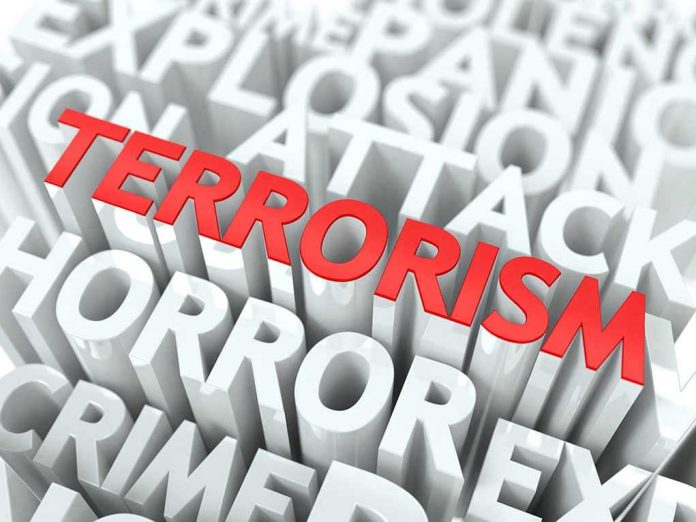
As cartel violence spreads unchecked across Latin America, a horrifying livestreamed torture and murder in Argentina exposes the global threat posed by organized crime and weak border policies.
Story Snapshot
- Three young women, including a 15-year-old girl, were brutally tortured and murdered in Argentina, their ordeal broadcast live to intimidate others.
- Authorities swiftly arrested the alleged cartel mastermind in Peru, demonstrating the cross-border reach of organized crime.
- The cartel’s use of social media for terror highlights the urgent need for stronger law enforcement and tech accountability.
- Protests erupt in Argentina, demanding justice and reforms as families mourn and communities fear escalating violence.
Cartel Violence Escalates with Horrific Livestreamed Murders
In late September 2025, Argentina was rocked by a gruesome crime that shocked even hardened observers of cartel violence. Three young women—Brenda del Castillo (20), Morena Verdi (20), and Lara Morena Gutiérrez (15)—were lured to a supposed party near Buenos Aires, only to be kidnapped, tortured, and murdered in a so-called “house of horror.” The cartel responsible brazenly livestreamed the ordeal to a closed group on social media, turning the victims’ suffering into a chilling warning for others. The brutality sent shockwaves through Argentina and drew condemnation worldwide, with many demanding answers on how such depravity could unfold and be broadcast without intervention.
Man Arrested in Seaside Resort Days After 3 Women's 'House of Horror' Torture and Murder Was Livestreamed on Social Media https://t.co/zOXRqAOEDb These are the criminals who are here illegally as well. I support ICE and @realDonaldTrump
— Bruce v McGraw (@bruc82762) October 2, 2025
The crime occurred in Florencio Varela, a suburb plagued by poverty and rising gang activity. Authorities believe the victims were targeted for allegedly stealing cocaine from the cartel, a charge their families deny. Investigators say the livestream was intended to terrorize potential informants and rivals, showcasing the cartel’s willingness to use digital tools for psychological warfare. This escalation in cartel tactics marks a dangerous convergence of organized crime and technology, exposing deep vulnerabilities in both law enforcement and social media oversight.
Swift International Response Underscores Security Challenges
Following the discovery of the victims’ bodies buried in a well, law enforcement agencies from Argentina and Peru launched a rapid investigation. Within days, multiple suspects were arrested, including Tony Janzen Valverde Victoriano, a 20-year-old Peruvian national and alleged mastermind known as “Little J.” His capture in a Peruvian resort underscores the international scope of modern criminal enterprises and the logistical challenges of cross-border policing. Argentina’s Minister of Security, Patricia Bullrich, announced the arrests and highlighted ongoing extradition efforts, while authorities noted cooperation from social media platforms—though Meta, Instagram’s parent company, disputed that the murders were streamed on their service and pledged to help investigators.
Despite the swift response, the case has fueled public outrage and mass protests in Argentina. Activists and families accuse authorities of failing to protect vulnerable women and demand greater government accountability. The incident has also reignited debate over border security, criminal justice reform, and the urgent need for policies that disrupt cartel operations before tragedies occur. For many, the crime stands as a grim testament to what happens when criminal organizations operate with impunity and exploit gaps in international coordination.
Broader Implications: Social Media, Policy, and the Fight for Justice
The livestreaming of cartel violence presents a new frontier in the fight against organized crime. Experts warn that the use of social media to instill fear and control communities represents an alarming escalation, requiring not only robust law enforcement but also stronger cooperation from tech giants. While Meta denies involvement, the event has intensified scrutiny of how platforms monitor and respond to criminal content. Calls for regulatory reform and greater accountability are growing louder, as citizens question whether enough is being done to prevent such atrocities.
Beyond technology, the case has renewed focus on the intersection of organized crime and gender-based violence. Femicide remains a pervasive issue in Latin America, often fueled by the lawlessness that cartels bring. Security analysts and gender violence experts alike stress that without decisive action—stricter borders, tougher penalties, and real digital oversight—criminals will continue to exploit the vulnerable and erode public trust. The pressure is now on both regional governments and global tech firms to step up, protect their citizens, and uphold the rule of law in the face of evolving threats.
Sources:
Cartel boss streamed teenage girls’ torture and murder in Argentina – The Telegraph
Women’s murders live-streamed spark protests in Argentina – CBS News




